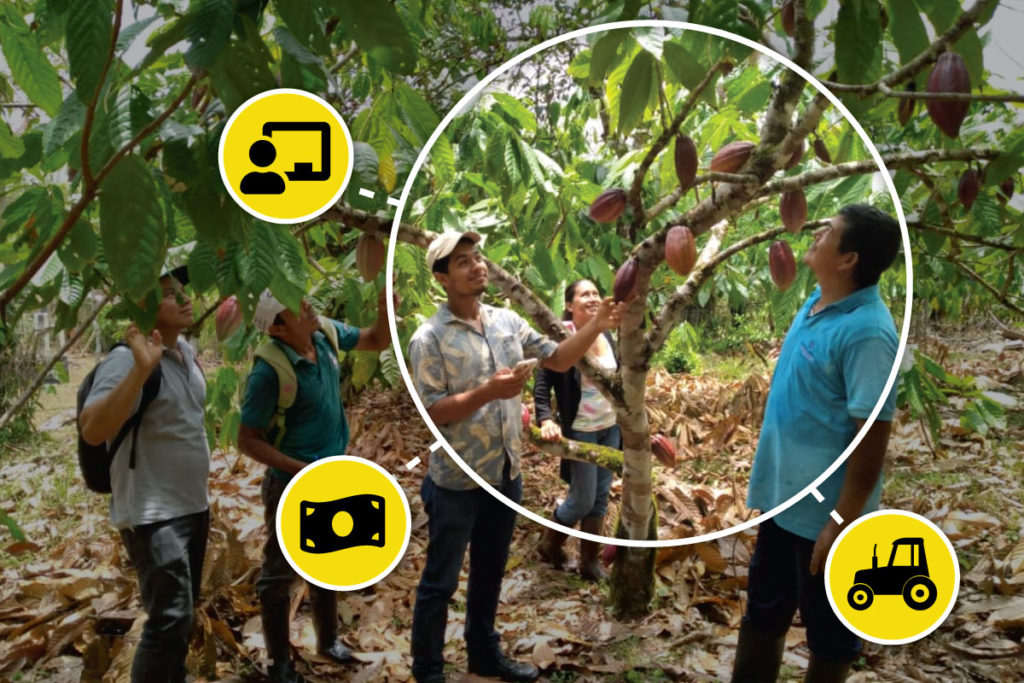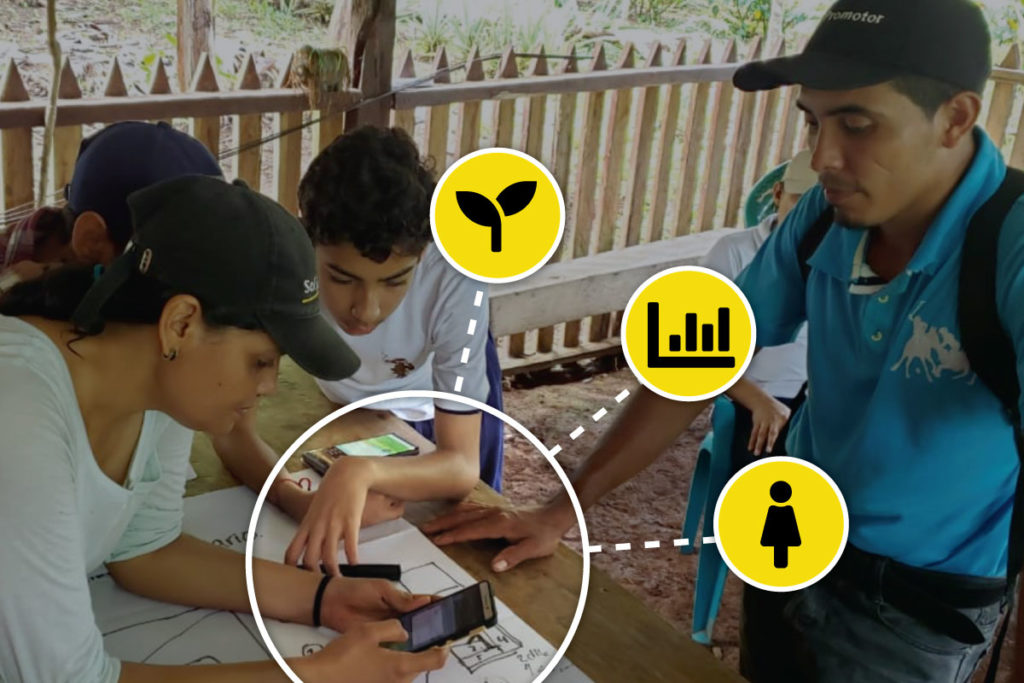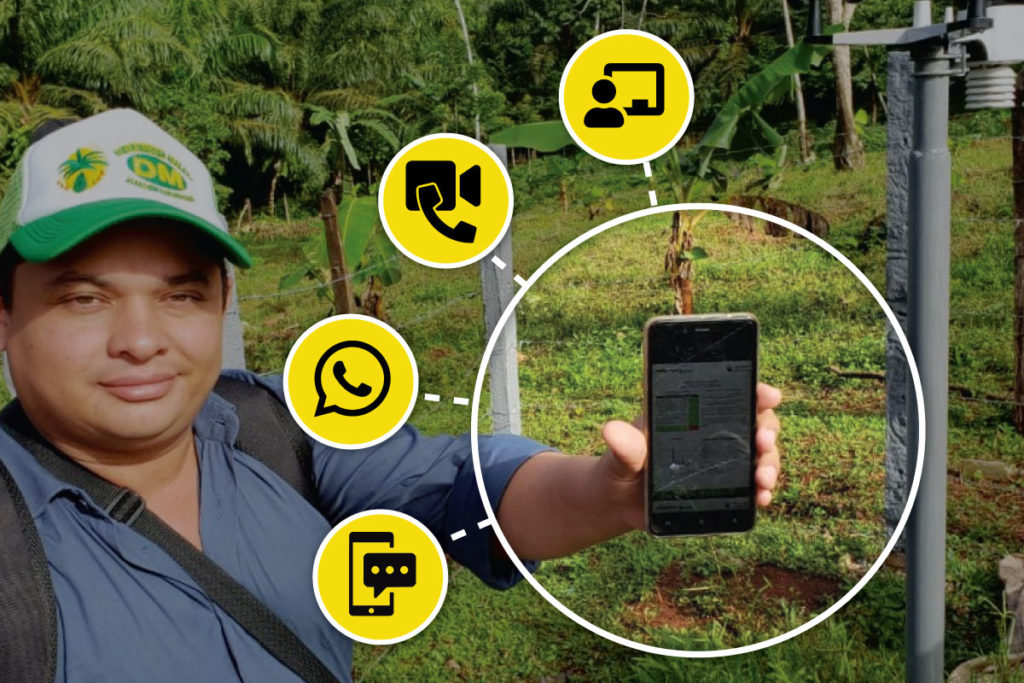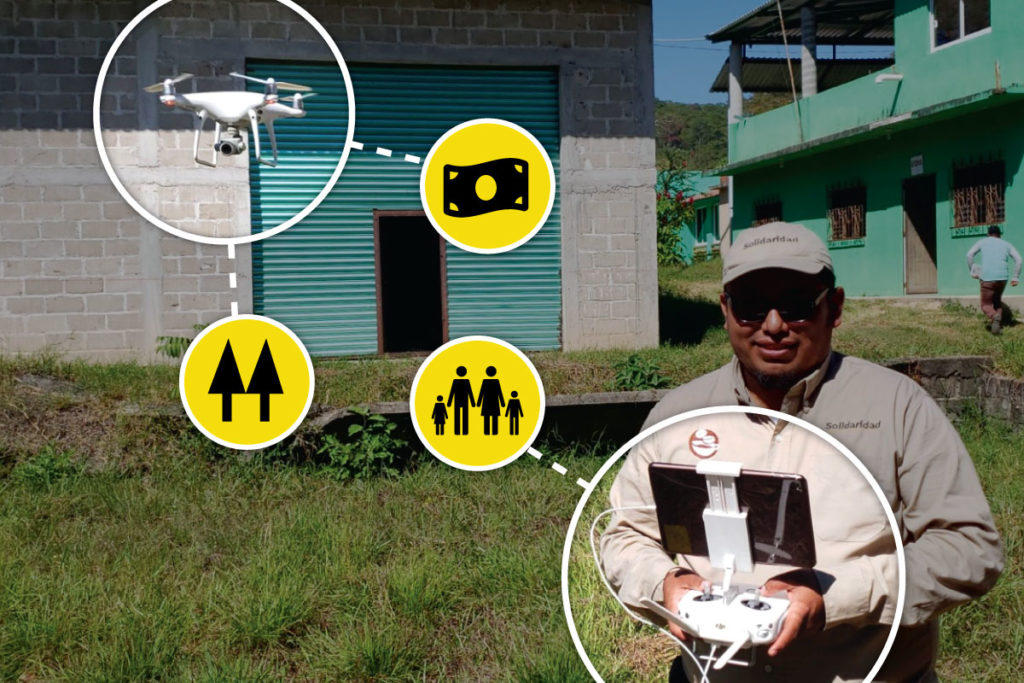
The current worldwide lockdown has forced us as a global society to pause and evaluate the way we define certain aspects of life, such as success and happiness, how we conduct business, and our fundamental understanding of work. Now, everything is related to smartphones, computers, software, platforms, apps, and the internet — it makes you notice how dependent we are on technology. But what is ‘life in the time of COVID’ like for those that don’t have access to the internet? What are farmers in rural areas doing to keep up with their kids’ daily education routines? How are they facing, or even getting accurate information on the impact of COVID on their economy?
The digital divide refers to the difference in accessibility and usage of information and communications technologies for certain people or groups. There are still more than three billion people globally with no internet access, and even among those with access, a divide exists between those who know how to use technology, and those who know just enough to get by. The origin of the digital divide is affected by various factors, including socio-economic conditions, geography, race, gender or age. Farmers in rural, developing nations often face the negative confluence of these factors.
Solidaridad’s ambition of becoming data driven is more urgent than ever. According to the McKinsey Global Institute industry digitization index, agriculture is the least advanced economic sector when it comes to being digitized. For Solidaridad, therefore, our goal is to not only improve our services and interventions, but to also help producers make decisions using real-time information, and with increased access, help reduce the digital divide.
Key Activities
Since 2018, Solidaridad has been developing and integrating digital tools that facilitate detailed and contextualized information exchange with farmers about their farms and their crops.
In Central America, Solidaridad has prioritized the use of digital surveys using mobile devices and decision making dashboards to identify in real time, for example, crop deficiencies. This allows field technicians and project managers to focus resources on the most immediate needs. Once the needs have been identified, personalized and continuous improvement work plans can be defined and tracked using digital tools to measure impact and results in productivity, quality, adoption of good agricultural practices, biodiversity protection, or deforestation.
While Solidaridad can’t create the infrastructure required to bring access to remote areas, we can share digital tools with our partners and involve them in the co-creation of new digital technologies to ensure they respond to actual needs in the field.

Highlights of this approach in Central America:
-
Users are empowered. Solidaridad is developing tools using an environmentally-centered design approach and positioning farmers as final users, providing them access to methodologies and information that empowers them to improve their yields and overall farm management. Thanks to this approach, cocoa farmers in Nicaragua can learn through an offline mobile app how to estimate their harvest and how to reduce the amount of sub-par or damaged fruit. Oil palm farmers can also learn how to estimate their harvest and identify the best fertilization option, according to soil and foliar analysis, without extra support from field technicians or extension services.
-
Smallholders get access to digital tools. We’ve developed digital tools that support smallholder coffee farmers in Mexico who can receive recommendations on how to improve their bean quality based on a real time SCAA analysis of their cup quality. In Honduras, satellite images are used to support zero deforestation compliance, and camera traps help monitor biodiversity protection in oil palm plantations, in a country where 75% of the producers are smallholders.
-
Producers have access to relevant information. In many cases, people cannot find information, online services or web and mobile applications in their primary language. Moreover, some people in rural areas lack the necessary literacy to understand the resources. In Nicaragua, livestock farmers receive real-time information from weather stations and early warnings on pest and disease proliferation, as well as recommendations on how to prevent risks related to climate change. All the content is in Spanish, supported with graphic resources.
-
Gender gap is addressed. The Food and Agriculture Organization (FAO) estimates that women make up anywhere between 70%–90% of the agricultural labour force in developing countries, but are at the bottom of the socio-economic and technology ladder. In Mexico, we joined the Ciudad Valles Technological Institute to implement a diploma course with a module focused on the use of digital tools, in which women and youth belonging to the families of small sugarcane producers were trained in the sustainable crop and harvesting of sugarcane.

Next steps
Solidaridad has developed its digital tools knowing that adopting new technology can be burdensome and difficult for farmers. Thus, not only do the tools have to be intuitive and user friendly, but our staff must be prepared to accompany farmers in the adoption and discovery of this new digital world, while at the same time providing support on sustainable agriculture practices.
Information empowers people to make better and more timely decisions that can reduce costs, increase their earnings, safeguard natural resources and ensure that business can flourish. Bridging the digital divide will be key to unlocking the potential of smallholders.
COVID has shown that there are still many challenges in the agriculture sector that need to be addressed: logistics, access to markets with fair prices, access to inputs, and access to financial services It has also shown that the interdependence amongst actors in value chains is huge and that those on the bottom of the pyramid deserve reward and recognition for helping keep food on our tables. Many things need to change to solve these voids and gaps. At Solidaridad, we believe that digital tools will help us adapt services to be more accessible, affordable and inclusive of rural areas and the agricultural sector. We also know we can’t do this alone, which is why we work with partners all along the value chain in the design and implementation of our digital solutions.

In the coming years, we expect farmers and other agricultural sector partners will be able to access Solidaridad’s suite of tools so that using satellite images, drones, mobile apps, bots and sensors is no longer for just big agriculture companies but for rural smallholders, too; this will help generate equity throughout sustainable agricultural value chains.
We will continue talking about this issue, because if we want to feed the world in this brave new world, producers need to be part of the digital revolution.
Have you come up with any ideas to fight against digital divide? Let’s continue the conversation.
